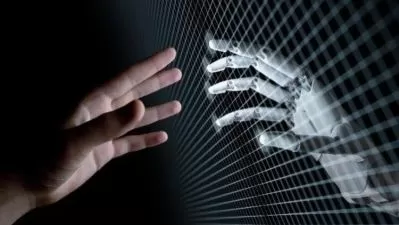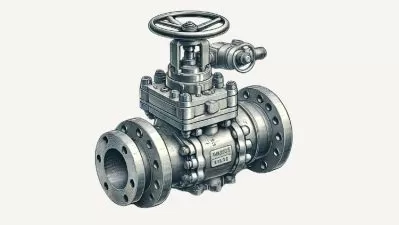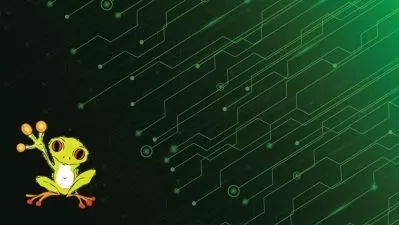The Industrial Revolution
Patrick N. Allitt
17:19:07
Description
We owe so much of our world to the Industrial Revolution. The lights that illuminate our homes, the cars that carry us to work, the computers that help drive our economy, and the appliances that make our lives easier—these technologies exist thanks to a remarkable group of scientists and entrepreneurs who, over the past 250 years, have transformed virtually every aspect of our lives and fueled one of the greatest periods of innovation in history.
You would have to look back to the Neolithic Revolution (the invention of agriculture) to find a comparable era when a new set of processes completely overwrote the old one. What happened to allow for such a transformation? How did governments, businesses, and ordinary laborers—beginning in 18th-century Britain—create the forces that completely upended modern society? And how are the innovations and processes of industry still at work transforming the world today?
In The Industrial Revolution, The Great Courses partners with the Smithsonian—one of the world’s most storied and exceptional educational institutions—to answer these questions and more. Taught by longtime Great Courses favorite professor Patrick N. Allitt of Emory University, this course is a fascinating examination of one of the most pivotal eras in history. Over the course of 36 thought-provoking lectures, you’ll explore the extraordinary events of this period; meet the inventors, businessmen, and workers responsible for these new technologies and processes; and uncover the far-reaching impact of this incredible revolution.
We recognize the benefits of the Industrial Revolution in hindsight, but we should not forget that it created numerous hardships along the way. Its method of creative destruction shattered the livelihoods of rank-and-file workers; the new economy increased inequality and often exploited workers; and it was environmentally harmful. While Professor Allitt presents all sides of the story, he shows how the ultimate effect of industrial ingenuity has been overwhelmingly beneficial—and how the fruits of this revolution liberated people from many of the difficulties and restrictions of preindustrial life.
From the humble engineers who helped build the machines and standardize the tools that powered the Industrial Revolution to the outsized personalities of businessmen such as Thomas Edison, John D. Rockefeller, Andrew Carnegie, and Henry Ford, and to the laborers and union leaders who challenged them, The Industrial Revolution presents a comprehensive—and complex—portrait of an exciting era; an era whose story is still being written throughout the world.
Discover the Technologies that Have Powered Our World
The technological achievements of the Industrial Revolution are nothing short of astonishing. Thanks to inventions such as the steam engine and processes such as large-scale iron smelting, industrial entrepreneurs were able to mechanize labor, which allowed for a host of new efficiencies, including
- standardization,
- interchangeable parts,
- division of labor,
- mass production, and
- global distribution.
Professor Allitt introduces you to the science behind some of the most astounding inventions in modern history, including the spinning jenny, the incandescent light bulb, and the computer processor. He shows you how these inventions came about and traces their development. For instance, you’ll see how Thomas Savery’s “atmospheric engine” paved the way for Thomas Newcomen’s steam engine, which James Watt then improved for use in locomotives by George Stephenson. The Industrial Revolution also reveals what effects these technologies had on every aspect of human life.
- Discover the mechanics behind coal mining and iron coking, and find out how these raw materials fueled the revolution.
- Analyze the role the public and private sectors played in the development of national infrastructure.
- Witness the building of railroads, canals, and bridges, and reflect on the importance of global transportation.
- See how a couple of bicycle repairmen changed the world with a successful flight on a beach near Kitty Hawk, North Carolina.
- Delve into the brutalities of 20th-century warfare and ponder the double-edged sword of new technology.
Meet the Industrialists Who Capitalized on These Innovations
The story of the Industrial Revolution is the story of people, business, and technology. Who came up with these inventions? Who transformed them from ideas in a laboratory to necessities in the consumer market? What impact did these new technologies have in the business world? Professor Allitt answers these questions and more by giving you an inside look at the history of industrial innovation.
- Examine how British shipyards created a model for future manufacturing.
- Find out who standardized the nuts and bolts that made industrial machines possible.
- Uncover the story of some of the world’s most well-known businesses in recent history: Bayer, Ford, American Steel, Xerox, and others.
- Learn the secrets of John D. Rockefeller’s monopoly business tactics with Standard Oil.
- Trace the rivalry between Thomas Edison and George Westinghouse, and meet the other scientists and inventors responsible for harnessing electricity.
You’ll explore the lives of engineers, inventors, architects, and designers, such as Abraham Darby, Henry Bessemer, Gustave Eiffel, and Eli Whitney—the great individuals responsible for changing the world. You’ll also discover how the Industrial Revolution affected more than just manufacturing; it inspired thinkers in a diverse array of other fields.
- Meet economists such as Adam Smith, Thomas Malthus,and David Ricardo, who sought to describe the new capitalist paradigm.
- Consider how industrialization influenced the ideas of political thinkers such as John Stuart Mill, Karl Marx, and Friedrich Engels.
- See what literary writers—including William Wordsworth, Charles Dickens, Thomas Carlyle, and Harriet Beecher Stowe—had to say about the Industrial Revolution.
- Reflect on the information age and the transition from mechanized labor to mechanized knowledge.
Immerse Yourself in the Challenges of Ordinary Workers
While the impact of the Industrial Revolution has been overwhelmingly beneficial, it did come with a cost. Workers saw their old livelihoods disappear and faced the often bleak challenges of boredom, noisy work environments, greedy management, dangerous tasks, and more in the factory jobs that replaced them.
Professor Allitt guides you through the world of guilds and unions, workhouses and factories to show you what it was like for those unfortunate people who lost their livelihoods to new inventions and suffered the health consequences of unsafe work conditions. You’ll see how the division of labor and the fear of industrial espionage led to the “de-skilling of labor,” where line workers knew little about the entire process of the work they performed.
After learning about the conditions that inspired Karl Marx and Friedrich Engels to write their famous manifesto, you’ll survey the history of labor upheavals. You’ll meet figures such as Eugene Debs and learn the story of the Great Railroad Strike, the Haymarket Square Riot, the Ludlow Massacre, and more. Then find out how businesses responded—or attempted to prevent—such occurrences by creating a system of paternalism.
Finally, you’ll look at the environmental impact of the Industrial Revolution: the soot and smog of London, the polluted rivers, the fear of nuclear fallout, and the new threats posed to the atmosphere. You’ll also consider how businesses and political activists have confronted—and in many cases solved—the environmental challenges of the past and laid the groundwork for a cleaner future.
Get a Masterful Presentation of a Complex Story
In The Industrial Revolution, Professor Allitt combines his skills as a rich storyteller and his expertise as a historian with the masterful scholarship and illuminating imagery from the Smithsonian to provide compelling insights about the period. Allitt has a true appreciation for the complexity of the Industrial Revolution, highlighting both the good and the bad.
In the end, Professor Allitt is refreshingly optimistic about the possibilities of human ingenuity. In his words, the Industrial Revolution was “one of the two or three most important changes in the entire history of the world.” It has enhanced wealth, health, security, longevity, and comfort. What’s more, he says, “Industrialization does not appear to be slackening.” The story may not be over, but this course will leave you with a new appreciation for the amazing human achievements all around us.
More details
User Reviews
Rating
Patrick N. Allitt
Instructor's CoursesDr. Patrick N. Allitt is Cahoon Family Professor of American History at Emory University, where he has taught since 1988. The holder of a doctorate in history from the University of California, Berkeley, Professor Allitt-an Oxford University graduate-has also taught American religious history at Harvard Divinity School, where he was a Henry Luce Postdoctoral Fellow. He was the Director of Emory College's Center for Teaching and Curriculum from 2004 to 2009, where he looked for ways to improve teaching. In this critical administrative position, he led workshops on a wide variety of teaching-related problems, visited dozens of other professors' classes, and provided one-on-one consultation to teachers to help them overcome particular pedagogical problems. Professor Allitt was honored with Emory's Excellence in Teaching Award and in 2000 was appointed to the N.E.H./Arthur Blank Professorship of Teaching in the Humanities. A widely published and award-winning author, Professor Allitt has written several books, including The Conservatives: Ideas and Personalities throughout American History; Catholic Intellectuals and Conservative Politics in America, 1950-1985; Catholic Converts: British and American Intellectuals Turn to Rome; and Religion in America since 1945: A History. He is also author of I'm the Teacher, You're the Student: A Semester in the University Classroom, a memoir about one semester in his life as a university professor. In addition, he is the editor of Major Problems in American Religious History. He has written numerous articles and reviews for academic and popular journals, including The New York Times Book Review.

The Great Courses
View courses The Great Courses- language english
- Training sessions 34
- duration 17:19:07
- English subtitles has
- Release Date 2023/06/07














